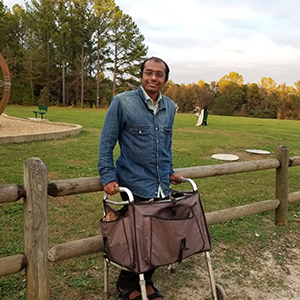 Accessibility of Movement Challenged Persons and their Earthquake Risk Perception
Accessibility of Movement Challenged Persons and their Earthquake Risk Perception
Degree Earned: Masters in Geography
Hometown: Dhaka, Bangladesh
Excerpt of Thesis: Persons with disabilities (PWDs) are the largest minority group of the world. Because of this huge number of people with disability across the world, rights of persons with disability (PWDs) has become global concern at present days to ensure a decent life for them. Sustainable Goals 11 has urged to develop inclusive, safe, resilient, and sustainable cities and human settlements with a special focus on the rights of PWDs to encourage inclusive and sustainable development. As PWDs are the one of the most vulnerable groups to the disasters, without developing capacity of PWDs, it is not possible to develop urban resilience and sustainability. It is also necessary to be aware of the disaster risk for PWDs to develop capacity and remain well prepared to withstand a disaster. If PWDs are not aware of risk, they are not going to take measures to be safe at the time of emergency. Along with that, in order to be safe at the time of disaster and emergency situation like earthquake and hurricane, PWDs should have the capacity to reach to the safe shelter via evacuation route. For this, evacuation routes must be accessible for PWDs. To ensure better accessibility of PWDs to evacuation routes, it is necessary to first evaluate the accessibility of PWDs to evacuation routes. Proper measures can be taken to improve their accessibility and overall resilience as a result. Despite its importance, little research has been dedicated to determine the accessibility of PWDs using a defined framework previously. This study aims evaluate the accessibility of movement challenged persons, disabled persons who suffer most from mobility and accessibility constrains, to evacuation routes and their risk perception. 455 MCPs from Dhaka, Bangladesh, a megacity highly vulnerable to earthquake with unplanned urbanization and people with lack of awareness of earthquake risk, has been surveyed to conduct the study.